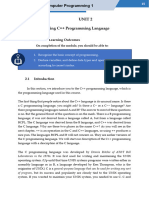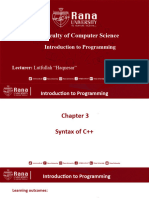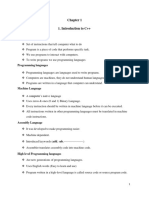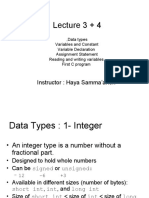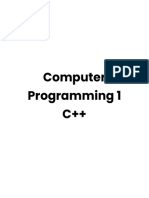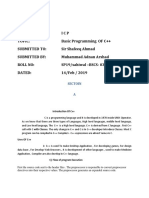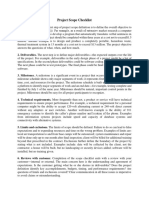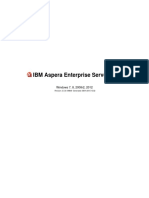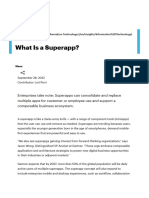0% found this document useful (0 votes)
8 views10 pagesLec1 Notes Pages
This document outlines the syllabus and introductory topics for CS 31, focusing on computer science fundamentals and the C++ programming language. Key areas include the evolution of computer languages, the compilation process, and basic programming concepts such as variables and data types. The document also highlights the importance of the textbook 'Absolute C++' and provides examples of C++ syntax and programming structure.
Uploaded by
gp5smsftfrCopyright
© © All Rights Reserved
We take content rights seriously. If you suspect this is your content, claim it here.
Available Formats
Download as PDF, TXT or read online on Scribd
0% found this document useful (0 votes)
8 views10 pagesLec1 Notes Pages
This document outlines the syllabus and introductory topics for CS 31, focusing on computer science fundamentals and the C++ programming language. Key areas include the evolution of computer languages, the compilation process, and basic programming concepts such as variables and data types. The document also highlights the importance of the textbook 'Absolute C++' and provides examples of C++ syntax and programming structure.
Uploaded by
gp5smsftfrCopyright
© © All Rights Reserved
We take content rights seriously. If you suspect this is your content, claim it here.
Available Formats
Download as PDF, TXT or read online on Scribd
/ 10












